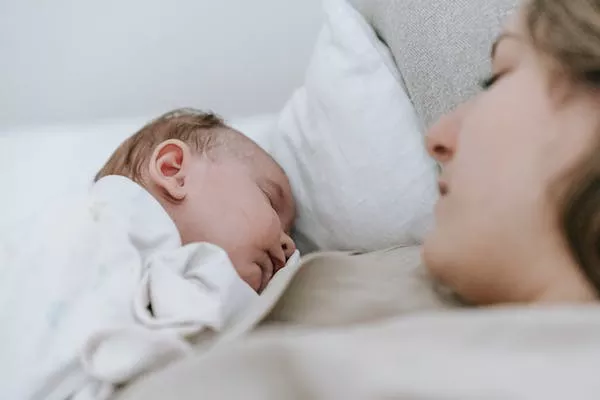Baby boxes, a concept originating in Finland in the 1930s, have gained global recognition for their dual purpose of providing essential newborn gear and a secure sleeping environment for infants. While a few American companies have attempted to popularize the idea of babies sleeping in cardboard boxes, the trend has never achieved mainstream status in the United States. Here’s an in-depth look at the history, past attempts, safety concerns, and a new, innovative solution that brings baby boxes to American households.
A Brief History of Baby Boxes
The notion of a “baby box” has long been associated with making safe sleep more accessible to families, particularly in Europe, according to baby sleep expert Cara Dumaplin, also known as Taking Cara Babies. In Finland, the program began in the late 1930s, expanding to all families in 1949. New parents in Finland receive a “baby box” as a gift from the government, filled with essential baby gear, such as clothing, bedding, hygiene products for postpartum moms, bibs, nail clippers, and even a hairbrush. What makes the Finnish baby box distinctive is the inclusion of a small mattress, effectively transforming the cardboard container into a safe baby bed.
In the 1930s, Finland faced a high infant mortality rate, with 65 out of every 1,000 babies not surviving their first year. Poverty was a contributing factor, as many parents shared their beds with infants, increasing the risk of Sudden Infant Death Syndrome (SIDS). The Finnish baby box aimed to promote prenatal care and provide a secure sleeping space for newborns. It is essential to note that the reduction in infant mortality in Finland is not solely attributed to the baby box but also to universal healthcare access and improved health information.
Many other countries, including Scotland and England, have adopted their versions of the baby box to support families. South Asia, through organizations like Barakat Bundle, provides baby boxes to mothers in need. In the United States, there have been various attempts to introduce baby boxes, but they have not gained widespread acceptance.
Previous Efforts in the United States
In 2017, New Jersey became the first U.S. state to launch a baby box program, following the Finnish model with a focus on safety and education. Parents were required to complete an online course and a short quiz to receive the baby box. Additionally, several private companies in the U.S., such as The Baby Box Co. and Finnbin, offered their versions of baby boxes for purchase, though these did not include all the newborn gear typically found in government-issued boxes.
While there was a period of increased interest in baby boxes in the United States, they never reached the popularity of traditional bassinets or cribs. However, the situation changed in 2022 with the introduction of new rules by the Consumer Product Safety Commission (CPSC). The design of baby boxes was no longer considered safe, leading to the discontinuation of baby box programs in the U.S.
The Innovative Solution: DockATot’s Kind Essential Bassinet
In early 2023, DockATot, a Scandinavian company well-known in the U.S., introduced the Kind Essential Bassinet. This innovative product draws inspiration from the Finnish baby box but elevates it off the floor to comply with CPSC regulations. The $119 Kind Essential Bassinet offers sustainability, recyclability, portability, and a post-use life as a toy box. Despite some critics highlighting its cardboard nature, it represents a fresh approach to a century-old baby-sleeping practice, potentially making baby boxes more acceptable in the United States.
Pediatrician Florencia Segura emphasized the safety aspect of the Kind Essential Bassinet, stating that it aligns with the critical principles of safe infant sleep—babies sleeping on their backs on a firm, flat, non-inclined surface in their separate sleep space. The raised design of these bassinets complies with federal regulations, ensuring the safety of newborns.
Is It a Better Alternative?
According to Dumaplin, if parents seek a safe and affordable option for their baby’s sleep, they can often find bassinets, play yards, or portable cribs at a similar or even lower price than many cardboard baby boxes. Despite a slow start in sales, DockATot’s Kind Essential Bassinet is gaining momentum as more parents recognize its safety and versatility.
In conclusion, the primary concern is the safety of baby sleep. While the cardboard nature of the Kind Essential Bassinet may be questioned by some, it is deemed a secure space for babies. It can also serve as a newborn lounger, which is a safer alternative for brief periods between diaper changes or feedings.


